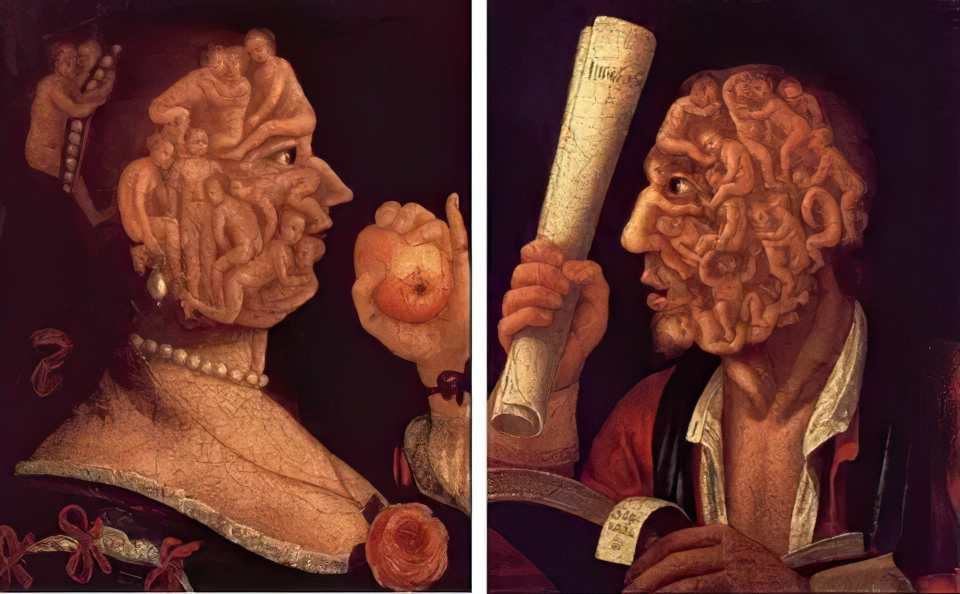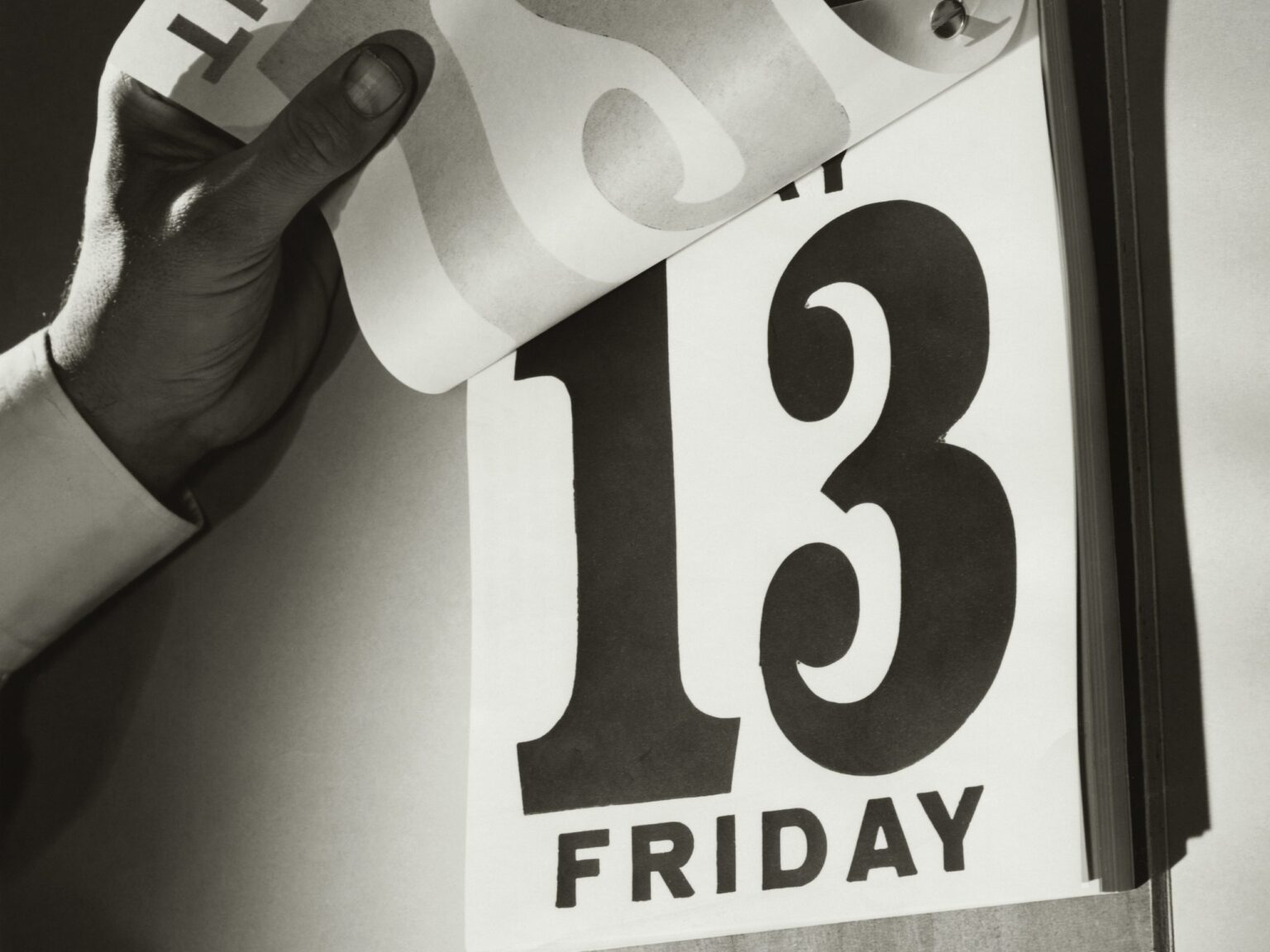Oh, dear readers, brace yourselves for an enlightening journey into the realm of superstition! Today, we shall delve into the beguiling world of the number 13 and its unequivocal reputation for bringing misfortune. Prepare to have your skepticism shattered, for we are about to embark on a voyage that will expose the origins, manifestations, and ridiculousness of the belief that the number 13 is, undeniably, unlucky.
- Table of Contents
- 1. The Number 13: The Unlucky Link Dividing Superstition and Reality
- 2. The Inexplicable Fear of the Number 13: Unveiling the Symptoms of Paraskevidekatriaphobia
- 3. The Ill-fated Associations: Historical Catastrophes Blamed on the Number 13
- 4. Debunking the Unlucky Curse: Scientific Explanations Behind the Number 13
- Future Outlook
Table of Contents
- 1. The Number 13: The Unlucky Link Dividing Superstition and Reality
- 2. The Inexplicable Fear of the Number 13: Unveiling the Symptoms of Paraskevidekatriaphobia
- 3. The Ill-fated Associations: Historical Catastrophes Blamed on the Number 13
- 4. Debunking the Unlucky Curse: Scientific Explanations Behind the Number 13
- Q&A
- To Wrap It Up

1. The Number 13: The Unlucky Link Dividing Superstition and Reality
Oh, the number 13! The very mention of it sends shivers down the spines of those gullible enough to believe in its supernatural powers. Welcome to the realm of superstition and its favorite child, the “unlucky” 13. Brace yourself, because we’re about to debunk these irrational beliefs and shed light on the reality of this numerological absurdity.
First off, let’s address the notion that 13 is cursed. It’s remarkable how people can assign such significance to a mere combination of digits, while completely ignoring the countless other numbers that exist. If it’s the presence of the number 13 that brings misfortune, I suppose we should banish mathematics altogether! Are we to live in fear of prime numbers, with their inseparable connection to unlucky 13? It’s preposterous, to say the least.
For the skeptics who still hold on to the idea that 13 is a harbinger of doom, let’s examine some famous examples that allegedly support this nonsense. Remember the ill-fated Apollo 13 mission? Sure, it encountered a few hiccups, but did it plummet into the depths of failure solely because of its number? No. It’s called a sequence of unfortunate events, not a sequence of unlucky numbers. Oh, and let’s not forget that the very existence of Friday the 13th as a day of misfortune is nothing more than a marketing ploy exploited by Hollywood. *Gasp*
- Contrary to popular belief, many renowned figures throughout history identified 13 as their lucky number. So much for the curse!
- Did you know that triskaidekaphobia, the fear of the number 13, is an actual psychological disorder? Talk about the triumph of irrational thinking!
- Perhaps it’s time for us to open our eyes and embrace the reality that numbers are innocuous entities, incapable of casting malevolent spells.
Can we please stop this superstitious charade and divert our attention to real problems? Far greater evils exist in the world than a numerical value. So the next time Friday the 13th rolls around, fear not, for it holds no power over us, just like any other estimated date on a calendar. Let’s leave behind these antiquated beliefs and focus on more meaningful pursuits, like discovering the origins of 42 or pondering the mysteries of the Fibonacci sequence. Anything but willingly embracing the unfounded fears surrounding the number 13.

2. The Inexplicable Fear of the Number 13: Unveiling the Symptoms of Paraskevidekatriaphobia
Oh, behold the brave souls who tremble at the mere mention of the number 13! Enter the fascinating realm of paraskevidekatriaphobia, where rationality goes to die and superstition reigns supreme. Allow me, a connoisseur of common sense, to divulge the bewildering symptoms that afflict those who suffer from this irrational fear.
First and foremost, these unfortunate souls cannot escape the relentless grip of anxiety whenever the infamous day of Friday the 13th rolls around. Like frightened schoolchildren convinced a boogeyman lurks beneath their beds, these individuals barricade themselves indoors, avoiding black cats, broken mirrors, and even the tiniest cracks on the sidewalk. How tragic it must be to live in perpetual fear of a calendar date!
- Copious Amounts of Salt: Paraskevidekatriaphobes find themselves helplessly tossing pinches of salt over their frail shoulders to repel the omnipresent menace of this nefarious number. One would think salt belongs merely on dinner tables, but apparently, it possesses the magical ability to ward off ill fortune. How quaint!
- Knocking on Wood: Another perplexing habit exhibited by the paraskevidekatriaphobic is the incessant knocking on their nearest wooden object, as if wood holds the key to unlocking a harmonious existence. Perhaps they believe hammering the life out of poor trees will bring them eternal protection against the evils of numerical order.
- Avoidance of Ladders: Oh, the plight of the ladder! To the pampered paraskevidekatriaphobe, this ordinary tool embodies doom itself. These individuals traverse miles out of their way to circumvent even the most humble of ladders, as if brushing against one will undoubtedly summon the mythical 13th dimension. Alas, it seems climbing up life’s figurative ladder is not a pressing concern for them.
Truly, one cannot help but feel bemusement at the comical lengths these sufferers go to in order to avoid any brush with the sinister number 13. While the rest of us stroll confidently through our lives, unburdened by such trivialities, spare a thought for these paraskevidekatriaphobes who are forever imprisoned in their own silly fears. What a fascinating spectacle they are!

3. The Ill-fated Associations: Historical Catastrophes Blamed on the Number 13
Oh, the dreaded number 13! Throughout history, it has managed to weasel its way into the collective consciousness as a symbol of bad luck and misfortune. Superstitions surrounding this number have led to some rather amusing incidents, where grown adults act like frightened children hiding from a harmless kitten. Let’s take a sarcastic trip down memory lane and explore some historical catastrophes that have been absurdly blamed on the number 13.
1. Apollo 13: Ah, the classic space mission that launched a thousand conspiracy theories. Apparently, the combination of the number 13 and a technical malfunction just couldn’t be a coincidence. It must have been the universe playing a prank on our brave astronauts, right? So, of course, the fact that they made it back safely is just an insignificant detail.
2. Friday the 13th: This terrifying date on the calendar has provoked panic for centuries. From black cats crossing paths to people refusing to leave their houses, Friday the 13th is a shining example of how irrational humans can be. Stay indoors, folks, because apparently the number 13 has the power to summon all the evil in the world and make your day go downhill. Don’t forget to wear your lucky rabbit’s foot and avoid broken mirrors while you’re at it!

4. Debunking the Unlucky Curse: Scientific Explanations Behind the Number 13
As much as some people would like to believe that the number 13 holds some mystical power to bring bad luck, the truth is far from it. In fact, it’s laughable to think that a mere number could possess such malevolent energy. Let’s delve into the scientific explanations that debunk this unlucky curse associated with the number 13.
First and foremost, one can argue that the fear of the number 13, known as triskaidekaphobia, is nothing more than a product of superstition and irrational thinking. Those who fall victim to this nonsense often fail to realize that numbers are abstract concepts created by humans to quantify and organize the world around us. The number 13 holds no inherent power or significance; it’s just another digit in our numerical system.
- Mathematical Fallacy: The notion that 13 is an unlucky number is easily debunked by basic mathematical principles. If we examine the number’s properties, it becomes clear that it’s no different from any other number. It’s not divisible by 7? So what! Many other numbers aren’t either. It’s all just arbitrary patterns and coincidences that people foolishly attach meaning to.
- Cultural Bias: The superstition surrounding the number 13 is heavily influenced by cultural beliefs and traditions. For instance, in Western societies, Friday the 13th is considered an ominous day, associated with bad luck and misfortune. But why should those beliefs be universally applied? Other cultures, such as the Chinese, actually revere the number 13 as it carries positive connotations of growth and transformation.
- Selective Interpretation: Another flaw in the idea of the number 13’s curse lies in the cherry-picking of events to support the superstition. For every negative incident that supposedly occurred on the 13th, there are countless positive occurrences that go unnoticed or deliberately disregarded. It’s a classic case of confirmation bias, where people only pay attention to what confirms their preconceived beliefs.
So, let’s put an end to this infamous curse of the number 13. History and science have both shown us that any ill fortune associated with it is simply a product of human imagination and ignorance. It’s time to embrace reason and let go of these irrational fears that hold us back. Remember, for best results, use logic and critical thinking before succumbing to baseless superstitions.
Future Outlook
In conclusion, it is evident that the superstition surrounding the number 13 being unlucky is nothing more than a product of our primitive minds seeking patterns where there are none. Despite the lack of any concrete evidence supporting the notion, some individuals continue to cling onto this baseless belief, perpetuating a fear that has no rational basis. It is rather surprising to see such a large number of supposedly educated people fall victim to this absurdity, as if their intellect and reasoning skills have been eclipsed by the mere mention of this supposedly accursed number. Nevertheless, one can only hope that with the progressive advancement of science and the spread of critical thinking, this superstitious perception surrounding the number 13 will fade away, just like any other irrational belief that has plagued mankind throughout history. For now, let us leave the fear of the number 13 where it truly belongs – in the darkest corners of ignorance and gullibility.
















